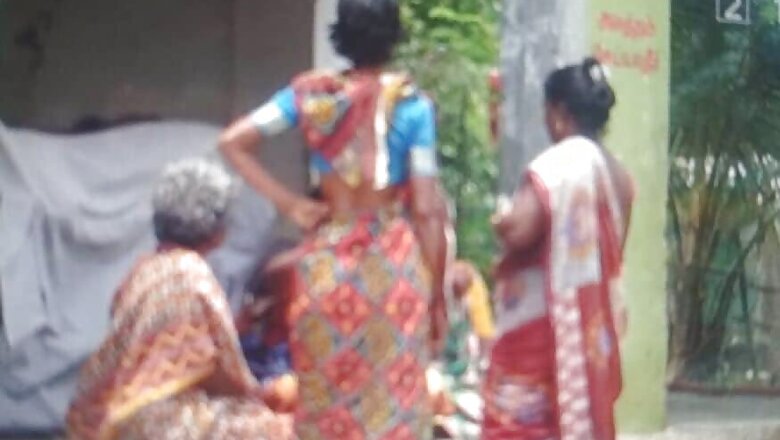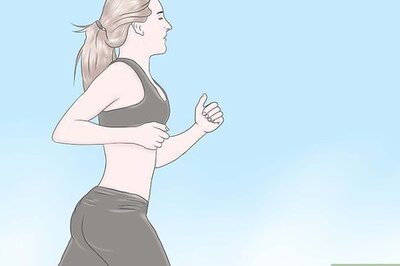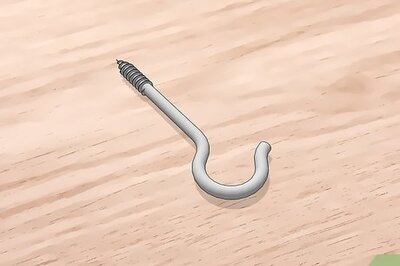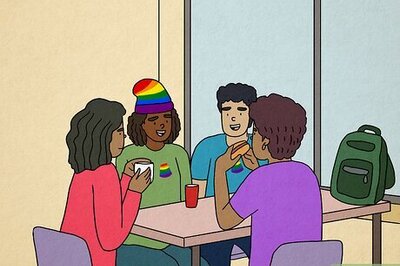
views
Vijaya, living along the famed Marina beach in Chennai, is at her wits’ end now. A bajji (snack) seller, her pushcart remains in disuse, and most probably will remain so in the foreseeable future, given that the city’s corporation has prohibited public visits at the beach.
Her son’s temporary job with a private company came to an end, after the firm's funds for salaries dried up. She is now, totally and abjectly, in the mercy of state’s rations for food.
The lives of the subaltern classes have taken a turn for the worse since the first coronavirus lockdown in March, eroding their agency to earn a living and rendering them dependent on the state for essentials, from food to medicines to emergency care. The effect of the pandemic on those living on the fringes, with no real social security, has been debilitating, say people in the unorganised economic sector.
As an added layer of misery, some livelihoods have been dealt a double whammy: their chances of getting back on their feet are minimal even after the phased 'unlocking'.
"We don't know when the beach will be open for public. The officials keep saying Chennai is seeing a surge in cases and ask us to not venture out. We used to get Rs 100 a day. On Sundays, we get Rs 200-300... this is how we survived so long," Vijaya says.
"Now there is no income," she continues. "We only get free ration but how can we survive this way?"
She says her son is currently jobless, even as the electricity bill continues to increase; coming up to Rs 4,000 in her block.
"We are asked to stay indoors. All of us are staying at home and the power bill also shot up. With no income, what will we do," asks the bajji seller, who has been running a stall at the Marina beach for 30 years.
With the prohibition of pushcarts on the Marina, several others have been unable to conduct their business. Another seller, Malar, shares her current challenge:
"Push carts are prohibited across the city because officials say crowds gather around such carts. So where will we go and sell now? We don’t know how long this situation would last as the pandemic is not yet over,” she says, adding that a similar situation is faced by those who live in the locality, as most of them had stalls at Marina beach, including pani poori and bajji shops.
In their own ways, people like Malar and Vijaya have managed to keep afloat, but the predicament of those living in the Sri Lankan refugee camp in Gummidipoondi in Tiruvallur district is worse as people have had to remain within the camp for the entirety of lockdown.
Sixty-year-old Angamma has been running a temperature for three days now.The only grocery shop in the Sri Lankan refugee camp in Chennai has nothing beyond Vicks Action 500 in stock. With no Paracetamol available, and extremely limited access to the outside world, Angammal is in a precarious situation. For now, it’s home-made pepper rasam which comes to her rescue.
Ever since the lockdown, the refugee camp is barricaded and it is difficult to step out, even for essential services such as going to a nearby hospital or pharmacy, Angamma says.
"Also, the pharmacy is more than a kilometre away from the camp and public transport and autos are banned here. Senior citizens like me are also scared to step out," she says.
Angamma wants a medical camp to be set up for refugees amid the pandemic. "Many people are catching cold or fever now," she says.
Hundreds like Angamma hope for the government to start monthly medical check-ups for the Gummidipundi camp.
However, this is not the only problem faced by the camp refugees. Most of them do not have permanent jobs. They are employed in daily-wage jobs such painting gigs, construction, among others. Ever since the onslaught of the lockdown, their livelihoods are at stake; they are unable to get jobs from contractors even after the city begins phasing into opening up.
“We have had no source of income since the end of March. All we get per month is Rs 1,000 from the government and free ration. This is not enough to survive a month. My son who has been working as a painter on a contract basis is still not getting jobs due to coronavirus," said Vijayalakshmi, another refugee battling the effects of lockdown.
"The little income we used to get before has stopped. Our lives have come to a standstill. My son is anxiously waiting to get back to work but we don’t know how long the current situation will last," she said.
There are concerns that the current divide between the haves and the have-nots would expand as a result of the pandemic. While there has been severe job losses in the white-collar world too, the pandemic has delivered a a complete blow to those employed in the unorganised sector. Until businesses pick up gradually, every day will be a struggle for the working classes.




















Comments
0 comment